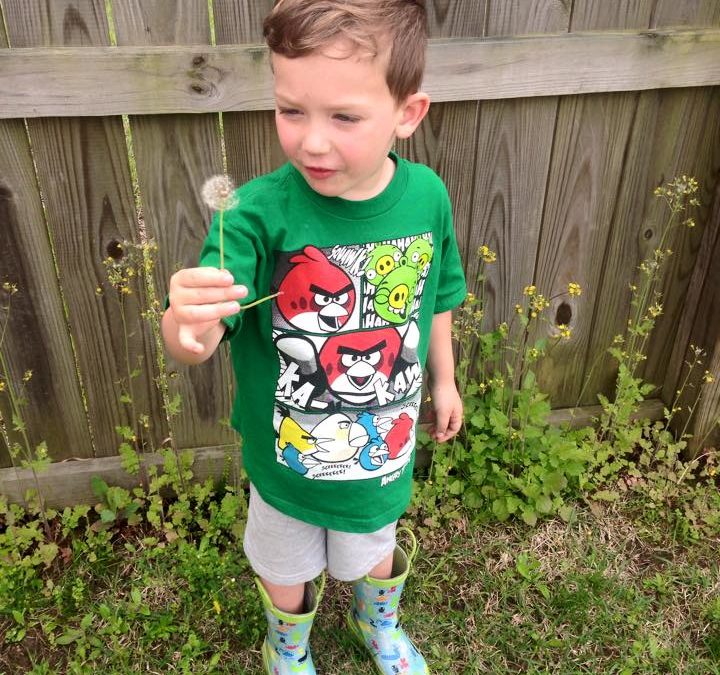Resilience Among Military Children

Each year, April is set aside as a military child appreciation month, officially known as the Month of the Military Child. With its start in the mid-1980s, the Pentagon and other military support organizations and agencies use the month to recognize military children for their sacrifice and bravery on the home front through the many unique challenges they face as part of military families.
The word “resilient” is often used in reference to military children. Resilience is the ability to cope with stress and change – to bounce back from whatever life throws at us, and resilience is something strengthened through life experiences. With deployments and frequent moves that require regular changes in lifestyle, routine, and community, military children regularly face challenges that inherently encourage resilience.
“New teachers, friends, places, dreams, homes – often. Change that was good, and change that could have broken me, but that was my catalyst to become resilient” said Stefanie Hunter, former deputy director of Early Head Start at One Place and former military child. “Change is a catalyst and will cause you to pause and make a decision as to whether you bend or break. From there, other traits are developed – resilience, adaptability, humility – it’s a game-changer.”
Resilient children often become resilient adults and parental resilience has been identified as one of the Five Protective Factors that support the healthy development and wellbeing of children and families. These factors help children function well at home, in school, and out in the community. Some also serve as buffers–helping parents use resources, support, and coping strategies that allow them to parent effectively, even when their lives are stressful. . Research has shown that the protective factors are linked to a lower incidence of child abuse and neglect.
“Being a military child makes you more resilient. Facing uncertainties like not knowing if your dad may be deployed or if you have to move in the middle of the school year forced me to develop a mindset to adapt quickly to the situations thrown at me,” said Salonika Wilson, training and technical assistance specialist at One Place and former military child.
Additional protective factors include knowledge of parenting and child development, concrete supports in times of need, social connections, and social-emotional competence of children.
Rachelle Gardner, training and technical assistance specialist at One Place, looks back on her childhood with an active duty father with an appreciation for how those early experiences positively shaped her adult life.
“Although it was rough having my dad gone, we learned how to be resilient. It did not destroy our family but made it stronger and built stronger relationships among us,” Gardner said.
Parents who can cope with the stresses of everyday life, as well as occasional crises, have resilience, flexibility, and the inner strength necessary to bounce back when things aren’t going well.
“Being a military child not only made me more resilient, but it is an important part of the story for me,” Hunter said. “The ability to be resilient shaped me into an adult who was able to care for my two younger brothers when we lost our mother in 2005. From resilience grew maturity, optimism, and a strong spiritual foundation in my Christianity.”
Hunter, now a parent herself, is raising two military children as the spouse of a former Marine and can see that same resilience blossoming in her children.
“My children are more resilient as they have experienced grief, change, problem-solving, celebrations, etc.,” she said. “What appeared as challenges allowed for opportunities to grow in resilience.”
Did you know? The official flower of the military child is the dandelion because the plant can put down roots almost anywhere, can survive in a variety of climates, and it’s almost impossible to destroy. (Sounds like a very resilient plant)
“Military children bloom everywhere the winds carry them. They are hardy and upright. Their roots are strong, cultivated deeply in the culture of the military, planted swiftly and surely. They’re ready to fly in the breeze that take them to new adventures, new lands, and new friends.” –Author Unknown
One Place supports children and families of all backgrounds, including military families, through programs such as Child Care Resource and Referral, Early Head Start, NC Pre-K, and services in the Child Advocacy Center. Approximately 35 percent of the children and families we serve are military-affiliated. One place also employs many military spouses, former and retired military members, and former military children.
To find out more about how One Place encourages protective factors in Onslow County, visit: https://www.oneplaceonslow.org/our-work/child-mental-health/
For more information on The Protective Factors Framework visit https://cssp.org/our-work/projects/protective-factors-framework/
